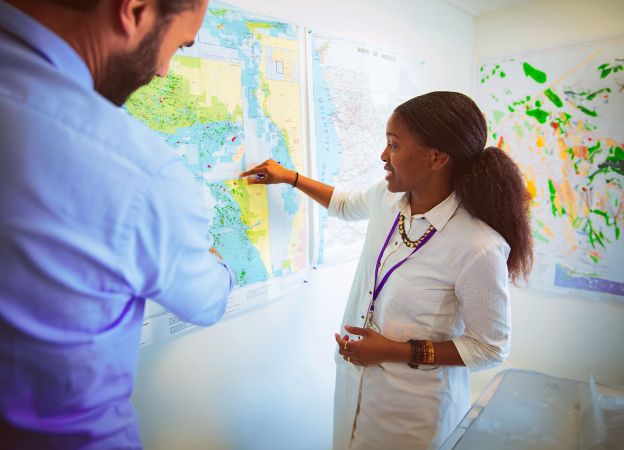~750 mln
people
with no electricity access, mainly in sub-Saharan Africa and South East Asia in 2023

Or , our new artificial intelligence tool.
We work to guarantee secure access to energy sources by carrying out dedicated sustainable development projects in favour of local growth.

The main areas where we work to tackle energy poverty. By continuously interacting with and involving local communities in the countries where we operate, we promote access to energy using a number of tools:
Building natural gas infrastructure
Transferring part of the extracted gas to the domestic market
Distributing liquefied petroleum gas (LPG) locally
Building gas-fed thermal power plants
Installing plants to produce energy from renewable sources
Distributing more efficient cookstoves for domestic cooking
We invest in infrastructure to produce and transport natural gas in the areas where we operate and enter into commercial agreements that involve the local use of a substantial portion of the gas produced, thus fostering local industrial growth.
We supply natural gas and liquefied natural gas to the local Egyptian market. The natural gas-fed Okpai and Omoku thermal power plants in Nigeria and the Centrale Électrique du Congo (CEC) in Pointe Noire in the Republic of Congo also contribute to power generation. In Iraq, we guarantee access to energy with a gas-fired power plant. We also operate renewable energy plants that contribute both to powering our plants, reducing emissions, and providing electricity to local communities in Egypt and Tunisia.
Chief Executive Officer of Eni

We rely on a robust global portfolio, on alliances with producer countries and on cooperation with international partners.
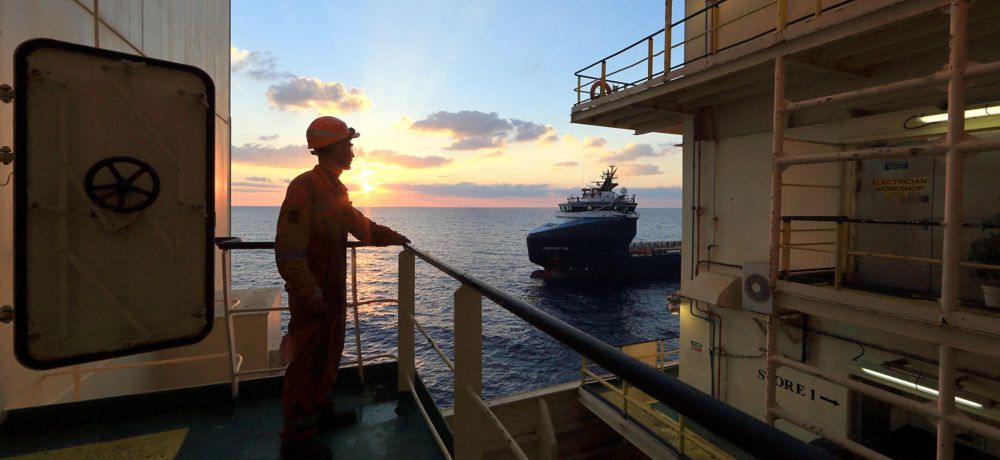
To support global population growth and economic development, expanding access to energy is essential while continuing along the path to decarbonization. Here are some data from Eni for 2024.
with no electricity access, mainly in sub-Saharan Africa and South East Asia in 2023
improved their access to clean water (including awareness campaigns)
investiments for local development in access to water and sanitation
A strategic study charts the best path to Europe's decarbonization by 2050 through the use of 100 key technologies.
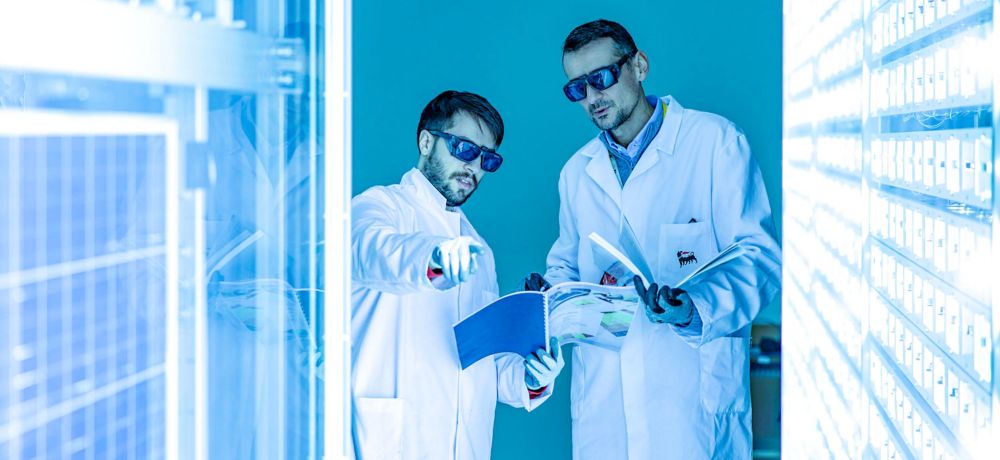
In the countries where we operate, we carry out local development projects to help improve the living standards of communities. Here are our main achievements in 2024.
supported with access to education
improved their access to electricity
supported with access to health services
These are the main targets contained in Eni's decarbonization objectives (Net Zero Carbon Footprint Upstream by 2030, for all of Eni by 2035 and Net Zero GHG Lifecycle Emissions and Carbon Intensity by 2050).
recipients of the Clean Cooking Programme by 2030
who will have access to electricity by 2030
to protect the environment and biodiversity to be launched by 2030
By replacing traditional cookstoves with more modern and sustainable, locally produced models, we are helping to reduce indoor domestic pollution, promote the economic development of countries and reduce CO2 emissions in countries like Mozambique, Côte d’Ivoire, Madagascar and Ghana. In particular, clean cooking significantly reduces the smoke released by combustion, improving the quality of life of families who do not have access to gas or electric stoves. Cookstoves also facilitate a more efficient use of wood biomass, thereby reducing deforestation, and contributing to create jobs because they are produced by local companies.
Visit the agri-feedstock projects that contribute to the increasingly sustainable supply of our biorefineries.
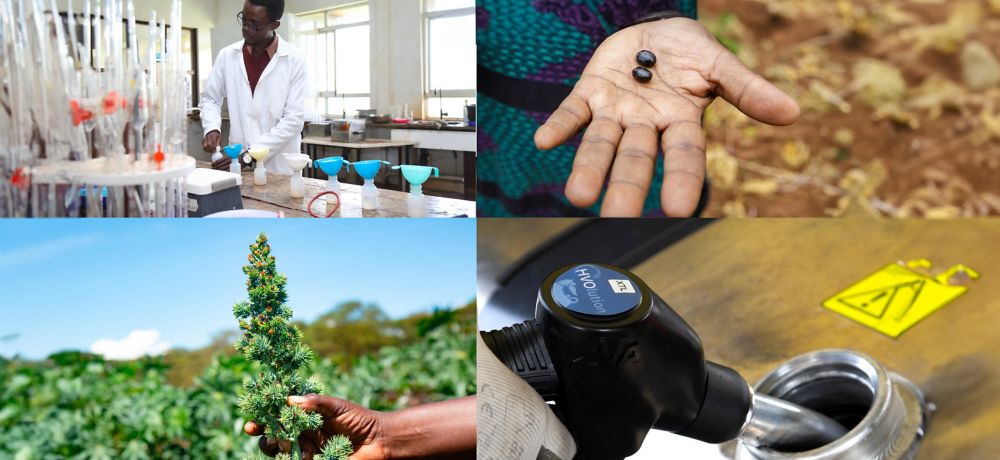
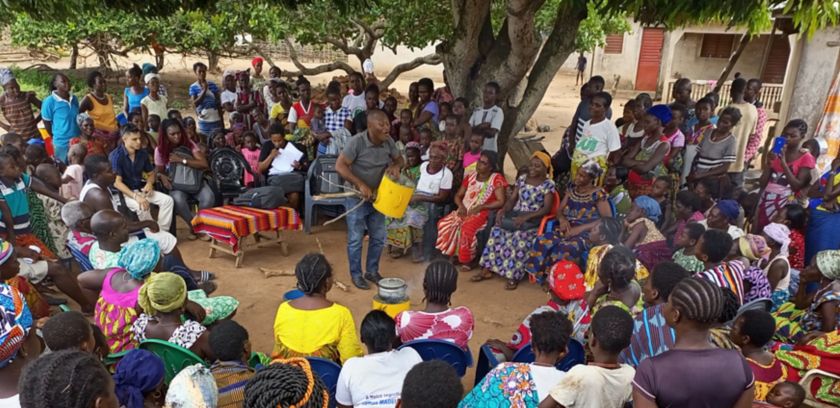
The project distributes improved cooking stoves with the aim of reducing wood biomass consumption and associated emissions.
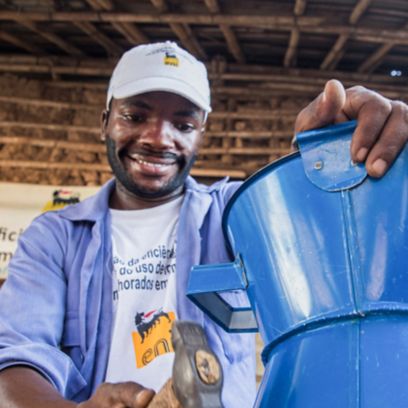
With slower and more prolonged combustion, the improved cooking stoves consume less coal, emitting less smoke.
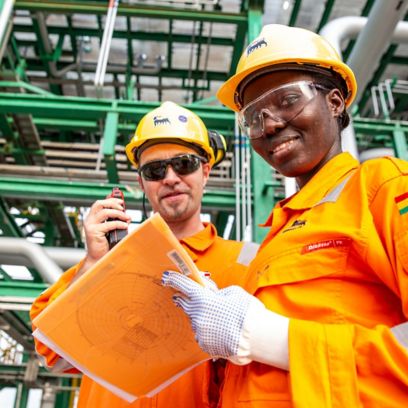
The integrated project off the west coast of Ghana for the domestic market started production early.
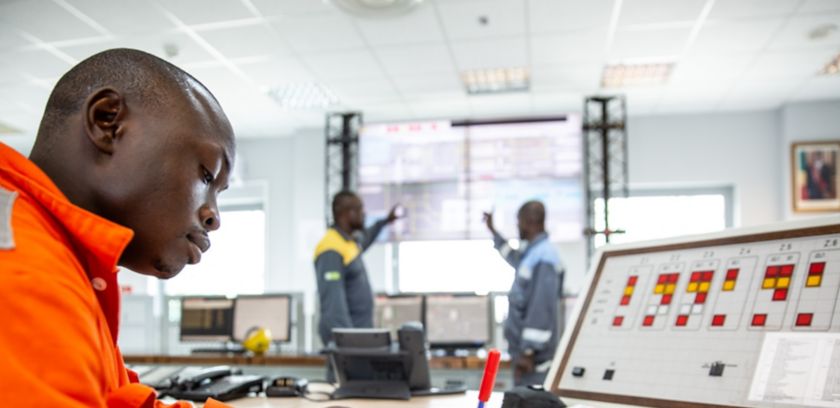
It is a large-scale integrated project aimed at improving the socio-economic conditions of local communities.
Read the stories, case studies and testimonials behind our contribution to a socially equitable energy transition in the Sustainability Report.


If you want to change topic, clear the chat and make a new query to receive more relevant results.
This will delete the question history.
If you want to change topic, clear the chat and make a new query to receive more relevant results. This will delete the question history.
Here you can find the full list of your queries.
The answers are generated by artificial intelligence, therefore they may contain inaccuracies. Please read the terms and conditions of use.

EnergIA is an innovative tool based on artificial intelligence capabilities, which can help you navigate the contents of eni.com, quickly finding answers to your questions. EnergIA can also perform a search on a specific topic, providing the most up-to-date data available, or it can invite you to delve deeper into a topic of your interest by suggesting links and specific readings. Start now!
EnergIA is an innovative tool based on artificial intelligence capabilities, which can help you navigate the contents of eni.com, quickly finding answers to your questions. Start now!
EnergIA (ener'dʒia) is a system based on Generative Artificial Intelligence.
Thanks to this technology, we can respond to your requests by querying the most relevant content and documents available on eni.com. (Note: financial documents from the last 12 months and press releases from the last 2 years are considered.)
Through EnergIA, you can delve into topics of interest and have a real-time window into the world of Eni.
If you wish to search for a specific document, press release or news, use the traditional search engine via the magnifying glass icon.
Like all systems that leverage Generative Artificial Intelligence, EnergIA may generate inaccurate or outdated responses. Always consult the sources that EnergIA proposes as the origin of the generated information.
If the system fails to find an exact match for the requested content, it still tends to provide a response.
If you find any inaccuracies in the provided response, please send us your feedback at the bottom of the page: it will be very helpful for us to improve.
Remember that the content generated by the system does not represent Eni’s official position. We therefore invite stakeholders to refer to their designated contacts for official statements: Press Office for journalists, Investor Relations for analysts and investors, Company Secretariat for shareholders etc..
EnergIA can understand questions posed in almost all languages, but we prefer to provide you with a response in English or Italian, the two languages available on eni.com. If you ask a question in Italian, the content on the site in Italian will be consulted. If you ask it in English or any other language, the content in English will be consulted. (Note: the language Eni uses for financial documents/content is predominantly English.)
If questions are formulated that violate the set security criteria, the system will not proceed with processing the response. Please remember not to send personal data.
By using this service, the users acknowledge that they have read and accepted the terms and conditions of use.
Search
EnergIA (ener'dʒia) is a system based on Generative Artificial Intelligence.
Thanks to this technology, we can respond to your requests by querying the most relevant content and documents available on eni.com. (Note: financial documents from the last 12 months and press releases from the last 2 years are considered.)
Through EnergIA, you can delve into topics of interest and have a real-time window into the world of Eni.
If you wish to search for a specific document, press release or news, use the traditional search engine via the magnifying glass icon.
Like all systems that leverage Generative Artificial Intelligence, EnergIA may generate inaccurate or outdated responses. Always consult the sources that EnergIA proposes as the origin of the generated information.
If the system fails to find an exact match for the requested content, it still tends to provide a response.
If you find any inaccuracies in the provided response, please send us your feedback at the bottom of the page: it will be very helpful for us to improve.
Remember that the content generated by the system does not represent Eni’s official position. We therefore invite stakeholders to refer to their designated contacts for official statements: Press Office for journalists, Investor Relations for analysts and investors, Company Secretariat for shareholders etc..
EnergIA can understand questions posed in almost all languages, but we prefer to provide you with a response in English or Italian, the two languages available on eni.com. If you ask a question in Italian, the content on the site in Italian will be consulted. If you ask it in English or any other language, the content in English will be consulted. (Note: the language Eni uses for financial documents/content is predominantly English.)
If questions are formulated that violate the set security criteria, the system will not proceed with processing the response. Please remember not to send personal data.
By using this service, the users acknowledge that they have read and accepted the terms and conditions of use.
A new window into Eni’s world, at your disposal. EnergIA is an innovative tool based on artificial intelligence capabilities, which can help you navigate the contents of eni.com, quickly finding answers to your questions.
